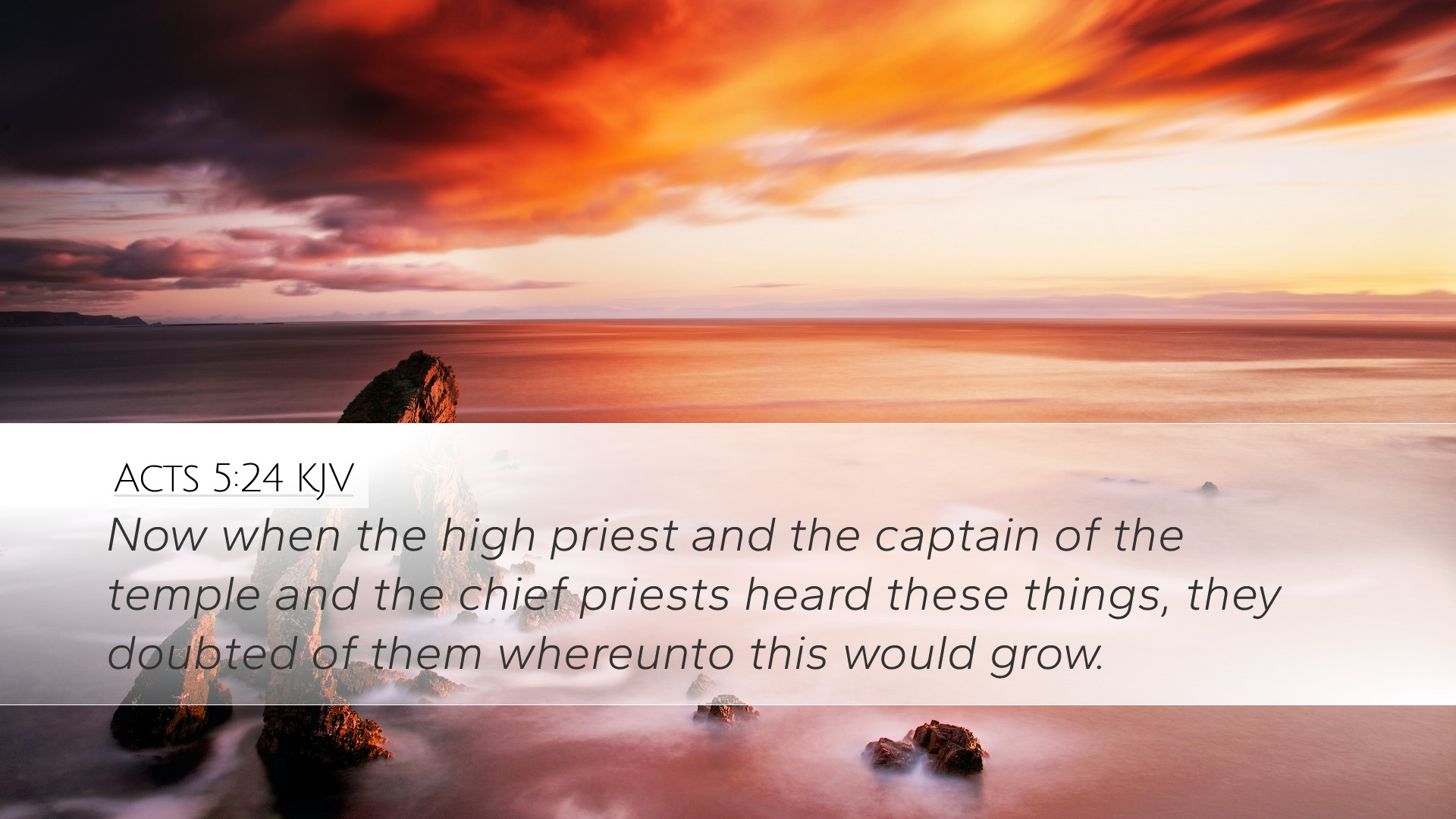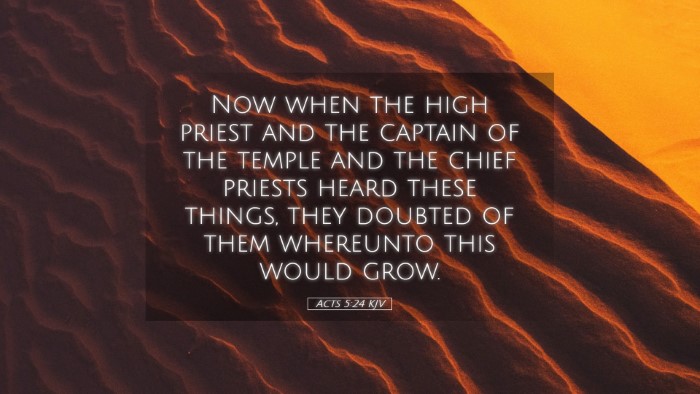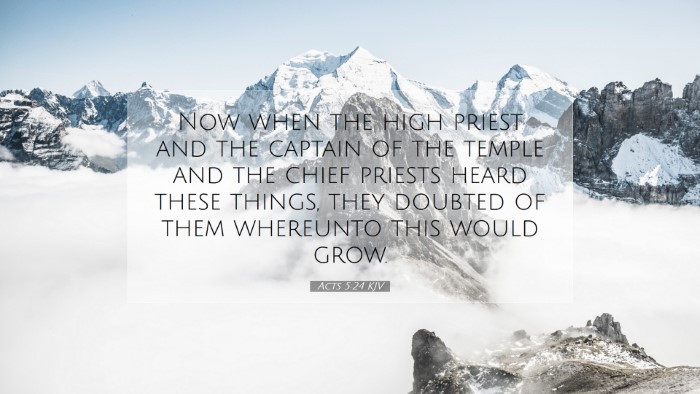Commentary on Acts 5:24
Verse: Acts 5:24 - "Now when the high priest and the captain of the temple and the chief priests heard these things, they doubted of them whereunto this would grow."
Introduction
Acts 5:24 presents a pivotal moment in the narrative of the early church, encapsulating the tension between the burgeoning movement of Christianity and established Jewish leadership. This commentary synthesizes insights from esteemed public domain commentators to provide a comprehensive understanding of the verse's theological significance and historical context.
Contextual Background
To fully grasp the weight of verse 24, one must consider the surrounding events within the book of Acts. Following the miraculous works performed by the apostles and their bold proclamation of the Gospel, the religious authorities, particularly the Sanhedrin, found their control threatened.
Commentary Insights
Historical Perspective: Matthew Henry notes that the high priest and the religious leaders' primary concern was maintaining their authority and preventing any potential upheaval that could arise from this new movement. They had witnessed the signs and wonders performed by the apostles, yet their response was one of doubt and apprehension.
Religious Doubt: Albert Barnes emphasizes that the phrase "they doubted of them" indicates the high priest's leadership was grappling with uncertainty regarding the implications of the apostles' activities. This doubt is significant; it hints that these leaders were not entirely dismissive of the movement but were engaged in a serious contemplation of what the extraordinary events could lead to.
The Nature of Doubt: Adam Clarke points out that the term "doubt" suggests a psychological and spiritual conflict within the Jewish leadership. Their doubts imply a recognition of the power exhibited by the apostles, which starkly contrasted with their institutional authority.
The Characters Involved
- The High Priest: Represents the religious authority and the institutional church, embodying legalism and tradition.
- Captain of the Temple: Signifies the state's involvement in religious matters, focusing on maintaining public order and authority.
- Chief Priests: Reflect the collective leadership of the Jewish religious system, showcasing the concerns that come with power and control.
Theological Reflection
Challenge to Authority: The events of Acts 5 serve as a reminder that God often works outside human expectations. The apostles' success leads religious leaders to a contrasting realization of their diminishing power.
Movement of the Spirit: As highlighted by the commentaries, this moment resonates with the theme of the Holy Spirit's active presence, bringing forth a newantity of faith that even the most powerful leaders struggled to suppress. This reflects the age-old conflict between divine authority and human authority.
Implications for Today's Church
For pastors, theologians, and scholars, Acts 5:24 catalyzes significant reflections on the church's current dynamics. The challenges of maintaining authority in an age of shifting beliefs are pertinent.
- Authority and Doubt: How should church leaders engage with doubt, both within themselves and their congregations?
- Recognizing the Work of the Spirit: What does it look like to acknowledge and support movements of the Spirit among congregations that disrupt traditional forms?
Conclusion
Acts 5:24 serves as a critical point that urges leaders and believers alike to remain vigilant in observing God's workings in their environments. The historical and theological tension captured in this verse reveals the often complicated interplay between divine inspiration and human authority. The insights provided by Matthew Henry, Albert Barnes, and Adam Clarke serve not only as historical reflections but as enduring lessons for the contemporary church.


